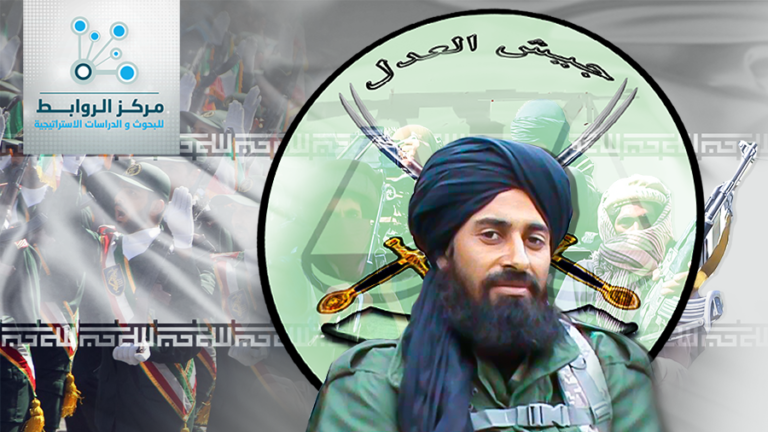As the conflict between Iran and Israel intensifies, with both nations launching missiles in a dangerous tit-for-tat exchange, militant groups inside Iran are seizing the moment. Among them is Jaish ul-Adl, a Sunni extremist group operating in Iran’s restive southeastern province of Sistan and Baluchestan. Long accused of staging deadly attacks against the Iranian state, the group is now amplifying its calls for rebellion, positioning itself as both a domestic insurgent force and a transnational actor seeking to reshape Iran from within.
In a statement released on 13 June, the group declared: “The current attack is not on Iran but on the regime. A vacuum has emerged, and it is our responsibility to fill it, to liberate our country and restore dignity to the people.” It added that domestic unrest and international pressure on Tehran had created a rare window for Iran’s people to reclaim their rights and forge a new political future.
From Smugglers to Soldiers: Iran’s Low-Intensity Insurgency
For years, Sistan and Baluchestan, an impoverished, Sunni-majority province bordering Pakistan and Afghanistan, has been the backdrop of a low-level insurgency. What began as socio-political dissent morphed into armed resistance, fuelled by decades of economic neglect, religious discrimination, and heavy-handed crackdowns by Tehran. Groups like Jundallah, the precursor to Jaish ul-Adl, emerged from these tensions, blending Baloch nationalist sentiment with Salafi jihadism in Shia-majority Iran.
Operating along porous borders, these groups have historically relied on a shadow economy of cross-border smuggling, drug trafficking, and alleged foreign support from wealthy Arab nations to finance their operations. But now, the battlefront is shifting, both technologically and geopolitically.
Cryptocurrency: A New Chapter in Insurgency Financing
Jaish ul-Adl has begun embracing cryptocurrency as a fundraising tool in a notable shift. In 2024, the group distributed QR codes for Bitcoin, Tether, and Tron-based wallets across its encrypted Telegram channels and website, citing “public requests to support the movement.” Encrypted platforms now form the backbone of this digital fundraising apparatus, allowing the group to solicit donations from sympathizers across the region with greater anonymity and reach.
This financial evolution could make the group harder to track and disrupt. With foreign backers, decentralized digital wallets, and encrypted communications, Jaish ul-Adl has expanded its operational flexibility, becoming a more agile and transnational threat. Its actions risk destabilizing Iran internally and threatening a critical transport corridor, the International North-South Transport Corridor (INSTC), that connects the Middle East with Central Asia and Russia.

Madrasas and Militancy: The Ideological Nexus
The rise of Salafi-jihadist ideology among Iran’s Sunni Baloch community can be traced in part to the influx of refugees and activists into Pakistan’s Balochistan and Karachi regions. Facing persecution and economic hardship, many families enrolled their children in religious seminaries (madrasas), which offered free education, food, and shelter. These institutions, particularly those aligned with Deobandi and Wahhabi thought, played a pivotal role in shaping the religious-political outlook of exiled Baloch Sunnis.
With the Iranian government closing or demolishing Sunni mosques, these madrasas became centers of ethno-religious identity and platforms for political mobilization. Many of Jaish ul-Adl’s senior leaders, including Abdul Malik Rigi and Salahuddin Farooqi, were educated in such seminaries, often with links to banned Pakistani groups such as Sipah-e-Sahaba and Lashkar-e-Jhangvi.
Foreign Funding and Regional Tensions
Iranian authorities routinely accuse Pakistan, the United States, Gulf countries, and Israel of financing unrest within its borders. Tehran claims that support for groups like Jaish ul-Adl is part of a broader strategy to destabilize the Islamic Republic and undermine its nuclear ambitions. Washington, in particular, has been accused of covertly funneling funds to Baloch insurgents during periods of heightened tensions over Iran’s nuclear program.
In addition to geopolitical maneuvering, sectarian motives have also driven support. Anti-Shia networks in Pakistan remain a significant ideological and financial reservoir for Jaish ul-Adl. Sunni businessmen from Punjab and Sindh are reported to contribute to donation campaigns, often conducted through mosques in Pakistan and Afghanistan. A traditional charity system, known as donation or sadaqah, is believed to be another critical funding stream.
Militancy Meets Technology
From deploying advanced weapons to adopting guerrilla tactics, Jaish ul-Adl is now increasingly embracing technology to modernize its insurgency. Its foray into cryptocurrencies is just one element of this transformation. Analysts say the group’s growing digital competence could inspire similar shifts among Baloch insurgent groups in neighboring Pakistan, particularly those targeting Chinese interests under the China-Pakistan Economic Corridor (CPEC).
The group’s messaging also echoes its regional ambitions. Its 2024 suicide attack in Chabahar, a strategic port city on the INSTC corridor, showed the group’s ability to strike essential infrastructure. Much like Baloch insurgents in Pakistan have intensified their attacks on CPEC-linked projects, Jaish ul-Adl appears to be signaling a willingness to do the same to Iran’s international partnerships.
A Perfect Storm of Conflict and Opportunity
As the Israel-Iran confrontation escalates, groups like Jaish ul-Adl find themselves in a position of renewed relevance. The intertwining of local grievances, regional proxy conflicts, and digital-age funding has transformed the group from a fringe insurgency into a potentially destabilizing force within Iran and beyond.
With growing domestic unrest, economic hardship, and mounting external pressure, Tehran is facing one of its most volatile moments in recent history. In that instability, Jaish ul-Adl sees not just chaos but opportunity.
